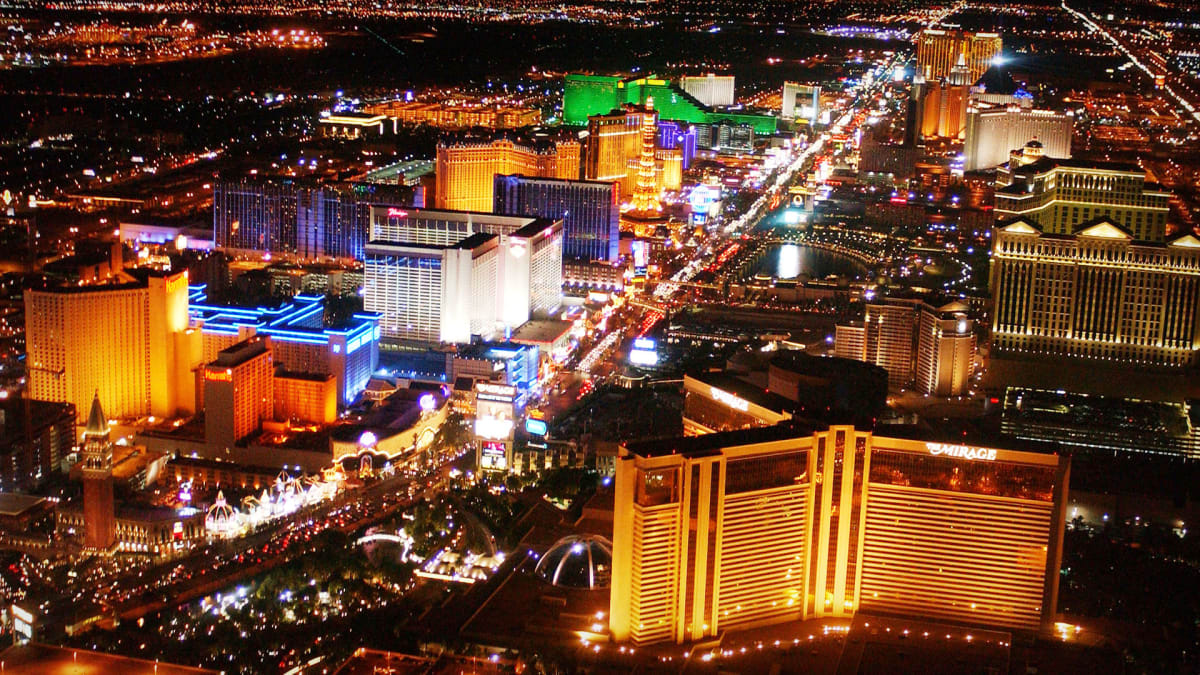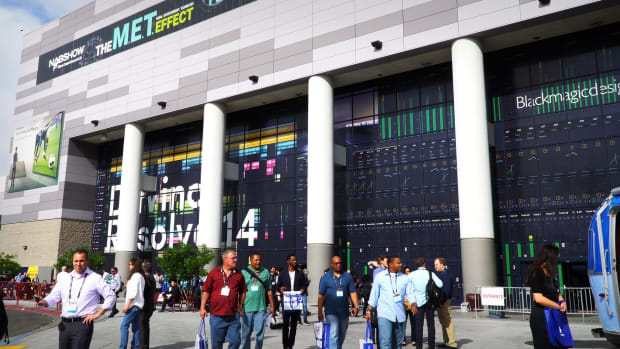
Nothing happens quickly or easily on the Las Vegas Strip.
If you decide to build or buy on the Strip, you have elected to compete with the giants of the casino business -- Caesars Entertainment (CZR), MGM Resorts International (MGM), and Wynn Resorts (WYNN) -- not to mention some of the huge hotel brands.
Construction happens slowly, costs can balloon from hundreds of millions to billions, and a lot can go wrong before you even get to that phase. That's why any announcement about new Strip projects that's not from Caesars, MGM, or Wynn gets taken with a grain of salt.
That's also why everyone has taken a wait-and-see attitude toward the NBA-ready arena project led by Jackie Robinson planned for a 27-acre site on the north Strip. That project has been in the works for roughly a decade with funding being announced multiple times, yet work has not begun on actually building it.
Announcing a Las Vegas Strip project is the first part of the journey, but it's not even a guarantee that ground will be broken. Some deals -- like Fontainebleau Las Vegas -- linger for years (or in this case decades) but eventually, reach the finish line.
Others get a press release announcing their plans to build on the Strip and then a news story saying that something has gone wrong. That's what's happening with a deal with the Las Vegas Convention and Visitors Authority (LVCVA) to sell 10 acres on the southeast corner of Las Vegas and Elvis Presley boulevards, the former site of the Riviera, to Chilean real estate investor Claudio Fischer for $120 million.

Shutterstock
LVCVA Gets Paid, Retains Las Vegas Strip Property
The LVCVA had an agreement with Fischer on the site that's next to the Fontainebleau and across the street from Resorts World. The Chilean billionaire, who has developed multiple casino projects, was expected to close the deal by Nov. 30, but he technically had until Dec. 15 as a final deadline.
He did not make the required payment by that date, the Las Vegas Review-Journal reported.
“The land sale to developer Claudio Fischer did not close on Dec. 15,” LVCVA CEO Steve Hill said in an emailed statement. “As a result, the LVCVA terminated the agreement, received the $7 million nonrefundable deposit, and relisted the property.”
With land prices steadily climbing on the Strip and the north Strip becoming a more desirable location, it's possible that this broken deal becomes a blessing in disguise for the LVCVA. It's possible, maybe even likely, that it will be able to sell the land to another buyer at a higher price.
Las Vegas Convention Center Project Still on Track
The LVCVA had planned to use the proceeds from the sale to partially fund a two-year, $600 million renovation project for the Las Vegas Convention Center's North, Central, and South halls that is expected to begin in March.
A spokesman for the LVCVA told the Review-Journal that the construction would move forward as planned despite the sale falling through.
"The LVCVA has scheduled construction around major conventions so that they won’t have to go elsewhere during the building process. A major part of the renovation will be construction of a climate-controlled corridor linking the North, Central, and South halls," according to the paper.
Major conventions have returned to Las Vegas, with CES 2023 taking place right now. That show is expected to draw over 100,000 people to the convention center.
The LVCVA expects that 2023 will mark a return to normal for the convention business which is good news for MGM, Caesars, Wynn, and other casino operators. Major conventions push room rates up and drive business to restaurants, casinos, and shows all across the city, not just on the Strip.







